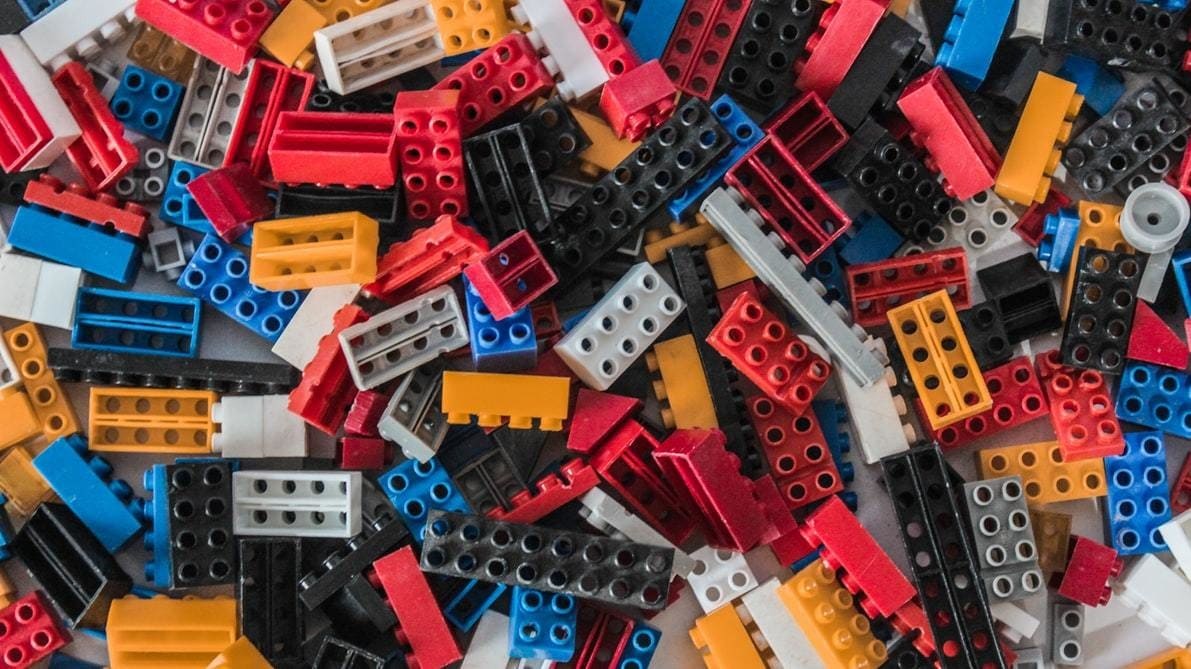This Lego experiment shows our brains prefer adding. Here's why it matters

Understanding the human preference for addition (as opposed to subtraction) could be beneficial for sustainability.
Image: Unsplash/Fran Jacquier
Stay up to date:
Sustainable Development
- New research shows that people prefer addition over subtraction.
- Academics used Lego to show that people tend to add things even when it’s against their interests.
- This may be because taking things away requires more cognitive effort.
- The findings could help us understand our impact on the planet and design better technology.
Many of us have drawn a picture and added just one more line or detail, only to realize - too late - we’ve ruined it.
This tendency to add things (and overlook the benefits of removing other things) may be our default state - even when it costs us money, according to University of Virginia researchers, who have demonstrated it using Lego.
The academics say their findings, published in Nature, could help explain why many people find it hard to manage hectic workloads and may be why humanity is damaging the planet.
As projects like UpLink search for ideas to boost sustainability, figuring out why we’re biased towards accumulation could lead to technology that understands us better.

What has the research found?
Participants were given a variety of tasks, including working out how best to stabilize the top of a Lego structure. They could do this either by adding new bricks - at a cost - or simply by removing a single brick.
Despite subtracting a brick being the simplest - and cheapest - strategy, the researchers discovered that under control conditions, around 60% of people would add more bricks anyway.
Unless participants were prompted, they were less likely to spot when taking things away might be to their advantage. And they were more likely to add things when time was limited, or when they were given several things to think about.
Across eight experiments, the researchers found that people “systematically default to searching for additive transformations, and consequently overlook subtractive transformations”. In other words, we tend to add things, regardless of whether it’s the best strategy.

So what’s going on?
We’re often told that less is more. Marie Kondo’s decluttering technique has inspired people around the world to live simpler lives. And increasing numbers of businesses recognize the benefits of a less resource-intensive circular economy.
Yet from our workplaces, to the kitchen, to the supermarket shop, our default solution is often to propose another meeting, add another pinch of salt, or buy an extra item. The explanation lies in how our brains are wired.
In the 1950s, the economist Herbert A. Simon proposed that humans have ‘bounded rationality’: we often deal with situations by reaching for an accessible solution, rather than the best one. Behavioural scientists including Nobel Prize-winner, Richard Thaler, have developed the idea that intuition drives much of our, often flawed, behaviour.
The University of Virginia’s researchers have added to our understanding of what this flawed behavior makes us do. "Additive ideas come to mind quickly and easily, but subtractive ideas require more cognitive effort," report co-author Benjamin Converse explained to Science Daily. "Because people are often moving fast and working with the first ideas that come to mind, they end up accepting additive solutions without considering subtraction at all."
Financing Sustainable Development
Can we change?
The good news is that it may be possible for us to gain some control over our addition-driven instincts.
The researchers found that people could be influenced into making more careful choices. When the Lego experiment’s participants were told that “removing pieces is free”, more people took blocks away than added them.
Such ‘nudges’ have already been used positively during COVID-19. For example, some public campaigns have emphasized how handwashing can be good for the whole community.
The researchers behind the University of Virginia also spot potential. The report’s co-author, Leidy Klotz, is optimistic: "I think our research has tremendous implications across contexts,” he says, “especially in engineering to improve how we design technology to benefit humanity."
Accept our marketing cookies to access this content.
These cookies are currently disabled in your browser.
Don't miss any update on this topic
Create a free account and access your personalized content collection with our latest publications and analyses.
License and Republishing
World Economic Forum articles may be republished in accordance with the Creative Commons Attribution-NonCommercial-NoDerivatives 4.0 International Public License, and in accordance with our Terms of Use.
The views expressed in this article are those of the author alone and not the World Economic Forum.
Forum Stories newsletter
Bringing you weekly curated insights and analysis on the global issues that matter.
More on Sustainable DevelopmentSee all
Robert Muggah and Jago Salmon
April 21, 2025
Michael Boampong and Kajsa Hallberg Adu
April 16, 2025
Alejandra Arochas and Constanza Torres
April 15, 2025
Makaio Witte and Sourajit Aiyer
April 14, 2025
Katia Moskvitch
April 14, 2025
Michelle You
April 10, 2025




